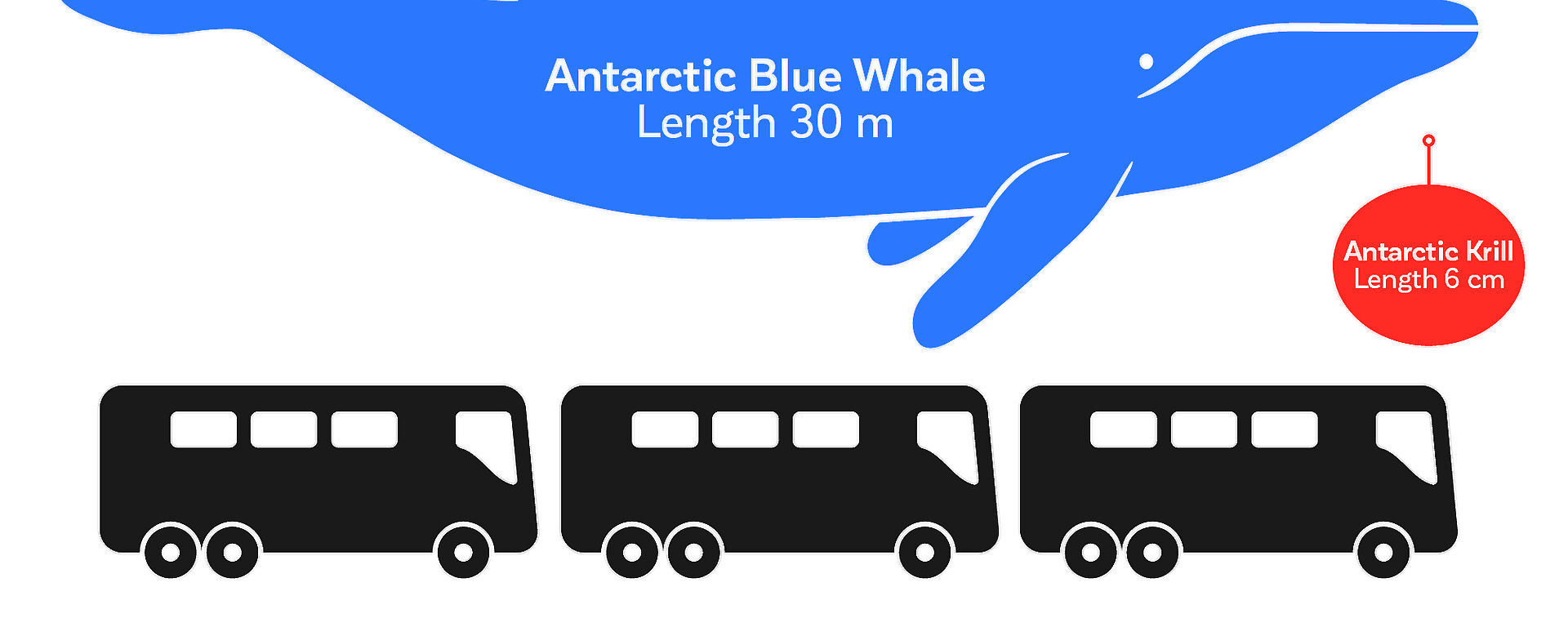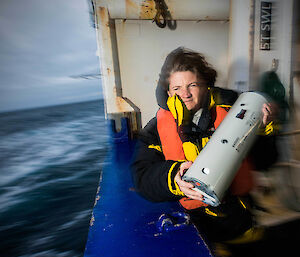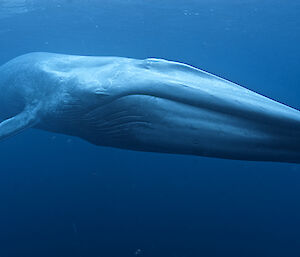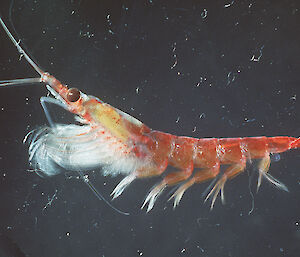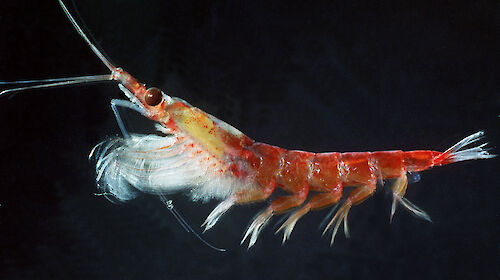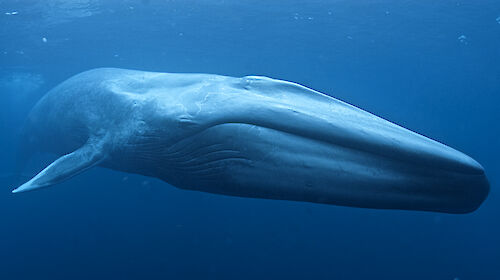A team of 28 international scientists hope to get an intimate glimpse into the daily lives of Antarctic blue whales and Antarctic krill, led by the Australian Antarctic Program on board the CSIRO Marine National Facility research vessel Investigator.
“We have a world-class combination of people, research ship, and cutting-edge technologies. It’s going to be an incredible seven-week voyage,” said Chief Scientist Dr Mike Double.
“We want to find out if the shape of krill swarms affect the distribution and behaviour of blue whales, and if the blue whales themselves fertilise the ocean with their poo which grows more algae for krill to eat.”
Using underwater listening devices to locate and track the whales off East Antarctica, the voyage will undertake a number of ‘firsts’ in scientific research.
The multibeam echosounders of the RV Investigator will develop the first detailed three-dimensional models of the size, shape and density of krill swarms.
Also for the first time, drones will be flown over Antarctic blue whales to photograph, measure and identify individuals, and attempt to collect samples of both the blow when a whale exhales and any faeces in the surface water.
Deputy Chief Scientist Dr Elanor Bell said the voyage will perform the first in-field experiments to test the theory that whales fertilise the ocean with iron, after eating iron-rich krill and excreting the metal in their faeces.
Iron is important for the growth of microscopic algae known as phytoplankton, which are the foundation of the marine food web around Antarctica.
“We’ll sample water in areas with whales and krill, whales only, krill only, and neither species. The sampling will reveal where the iron goes, how fast it sinks, and whether primary production increases over time,” said Dr Bell.
Dr Double said the research will inform the management of expanding krill fisheries.
“Knowledge about the whale-krill relationship and the role of whales in maintaining ecosystem health is key to understanding the ecology of the Southern Ocean,” he said.
As part of the Australian Antarctic Program, the research is managed through the Science Branch of the Australian Antarctic Division and supported by a grant of sea time on RV Investigator from the CSIRO Marine National Facility.

